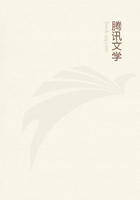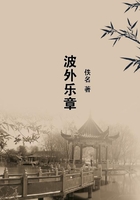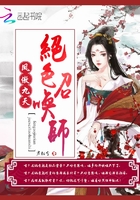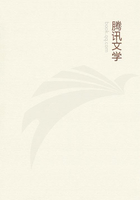Not till then was the second half of the fable of Amphitruo performed, with unmistakable references to the future birth of a Hercules of the House of Este.At a former representation of the same piece in the courtyard of the palace (1487), 'a paradise with stars and other wheels,' was constantly burning, by which is probably meant an illumination with fireworks, that, no doubt, absorbed most of the attention of the spectators.It was certainly better when such performances were given separately, as was the case at other courts.We shall have to speak of the entertainments given by the Cardinal Pietro Riario, by the Bentivogli at Bologna, and by others, when we come to treat of the festivals in general.
This scenic magnificence, now become universal, had a disastrous effect on Italian tragedy.'In Venice formerly,' writes Francesco Sansovino, about 1570, 'besides comedies, tragedies by ancient and modern writers were put on the stage with great pomp.The fame of the scenic arrangements _(apparati) _brought spectators from far and near.
Nowadays, performances are given by private individuals in their own houses, and the custom has long been fixed of passing the carnival in comedies and other cheerful entertainments.' In other words, scenic display had helped to kill tragedy.
The various starts or attempts of these modern tragedians, among which the 'Sofonisba' of Trissino (1515) was the most celebrated, belong in the history of literature.The same may be said of genteel comedy, modelled on Plautus and Terence.Even Ariosto could do nothing of the first order in this style.On the other hand, popular prose-comedy, as treated by Machiavelli, Bibbiena, and Aretino, might have had a future, if its matter had not condemned it to destruction.This was, on the one hand, licentious to the last degree, and on the other, aimed at certain classes in society, which, after the middle of the sixteenth century, ceased to afford a ground for public attacks.If in the 'Sofonisba' the portrayal of character gave place to brilliant declamation, the latter, with its half-sister, caricature, was used far too freely in comedy also.
The writing of tragedies and comedies, and the practice of putting both ancient and modern plays on the stage, continued without intermission;but they served only as occasions for display.The national genius turned elsewhere for living interest.When the opera and the pastoral fable came up, these attempts were at length wholly abandoned.
One form of comedy only was and remained national--the unwritten, improvised 'Commedia dell' Arte.' It was of no great service in the delineation of character, since the masks used were few in number and familiar to everybody.But the talent of the nation had such an affinity for this style, that often in the middle of written comedies the actors would throw themselves on their own inspiration, so that a new mixed form of comedy came into existence in some places.The plays given in Venice by Burchiello, and afterwards by the company of Armonio, Val.Zuccato, Lod.Dolce, and others, were perhaps of this character.Of Burchiello we know expressly that he used to heighten the comic effect by mixing Greek and Slavonic words with the Venetian dialect.A complete 'Commedia dell' Arte,' or very nearly so, was represented by Angelo Beolco, known as 'Il Ruzzante' (1502-42), whose customary masks were Paduan peasants, with the names Menato, Vezzo, Billora, etc.He studied their dialect when spending the summer at the villa of his patron Luigi Cornaro (Aloysius Cornelius) at Codevico.
Gradually all the famous local masks made their appearance, whose remains still delight the Italian populace in our day: Pantalone, the Doctor, Brighella, Pulcinella, Arlecchino, and the rest.Most of them are of great antiquity, and possibly are historically connected with the masks in the old Roman farces; but it was not till the sixteenth century that several of them were combined in one piece.At the present time this is less often the case; but every great city still keeps to its local mask--Naples to the Pulcinella, Florence to the Stentorello, Milan to its often so admirable Meneghino.
This is indeed scanty compensation for a people which possessed the power, perhaps to a greater degree than any other, to reflect and contemplate its own highest qualities in the mirror of the drama.But this power was destined to be marred for centuries by hostile forces, for whose predominance the Italians were only in part responsible.The universal talent for dramatic representation could not indeed be uprooted, and in music Italy long made good its claim to supremacy in Europe.Those who can find in this world of sound a compensation for the drama, to which all future was denied, have, at all events, no meagre source of consolation.
But perhaps we can find in epic poetry what the stage fails to offer us.Yet the chief reproach made against the heroic poetry of Italy is precisely on the score of the insignificance and imperfect representation of its characters.
Other merits are allowed to belong to it, among the rest, that for three centuries it has been actually read and constantly reprinted, while nearly the whole of the epic poetry of other nations has become a mere matter of literary or historical curiosity.Does this perhaps lie in the taste of the readers, who demand something different from what would satisfy a northern public? Certainly, without the power of entering to some degree into Italian sentiment, it is impossible to appreciate the characteristic excellence of these poems, and many distinguished men declare that they can make nothing of them.And in truth, if we criticize Pulci, Boiardo, Ariosto, and Berni solely with an eye to their thought and matter, we shall fail to do them justice.
They are artists of a peculiar kind, who write for a people which is distinctly and eminently artistic.

